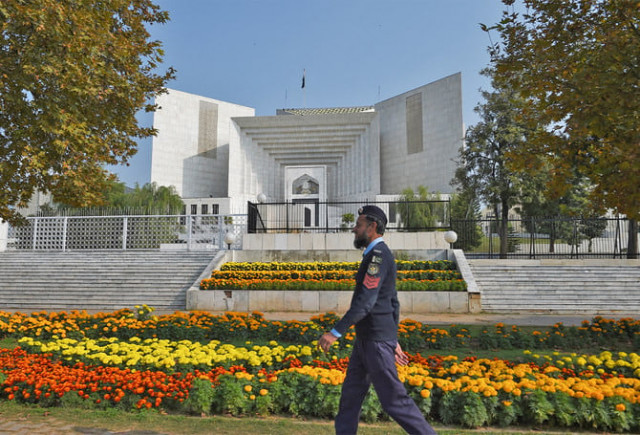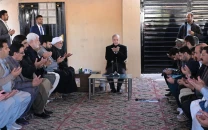Article 63-A does not mention lifetime disqualification, says SC
AGP Khan says Article 63-A cannot fulfill its purpose without lifetime disqualification

The Supreme Court on Tuesday said that Article 63-A of the Constitution did not mention lifetime disqualification as it only referred to temporary disqualification (de-seating) in case of violation.
During the hearing on the presidential reference, Attorney General Khalid Jawed Khan said defection was no ordinary political activity and added that the Constitution mentioned the tenure of an assembly, not of lawmakers.
According to the AGP, lawmakers’ membership ends in case of the dissolution of the assembly.
He said the purpose of Article 63-A will be fulfilled with lifetime disqualification and the law would not serve its purpose by de-seating lawmakers till the completion of the assembly’s tenure. The government’s lawyer said that in case of a declaration, Article 62(1)(f) will be applied to the dissenting lawmaker.
Read Discarding MNA’s vote in no-trust ‘insulting’: CJP
At this, Justice Jamal Khan Mandokhail asked whether disagreement meant dissent as per the AGP, to which Khan replied in the negative.
Justice Mandokhail said Article 63-A referred to de-seating, not disqualification. He added that there was no need for further discussion when there was no mention of disqualification.
“Will the Election Commission of Pakistan conduct an inquiry about defection?”
Justice Ijazul Ahsan said Article 63-A would not need evidence as defection was not a mistake but a deliberate action and further added that the court will have to do a lot of manoeuvring to determine lifetime disqualification.
Justice Muneeb Akhtar, giving his opinion, said that there was no mention of lifelong disqualification in Article 63-A. There were separate court decisions on the application and consequences of Article 62(1)(f).
Justice Mandokhail added that in case of possible defections, the party head was bound to listen to the version of the lawmakers by issuing a show-cause notice.



















COMMENTS
Comments are moderated and generally will be posted if they are on-topic and not abusive.
For more information, please see our Comments FAQ